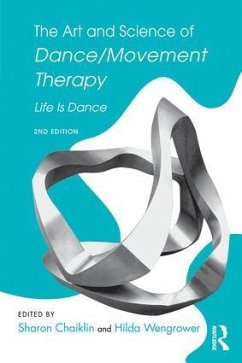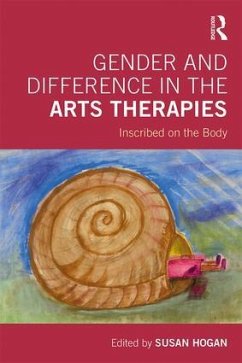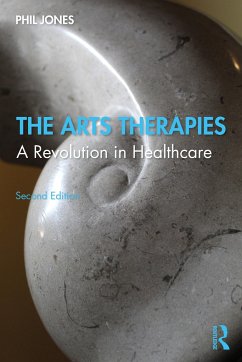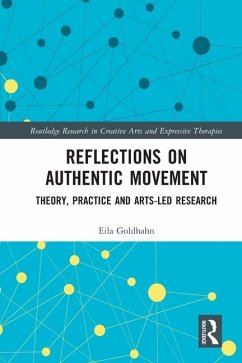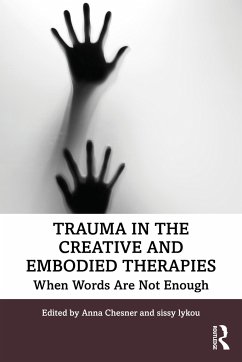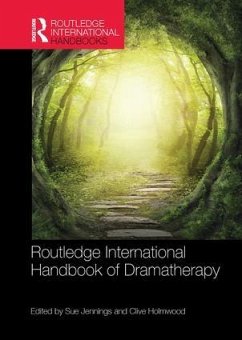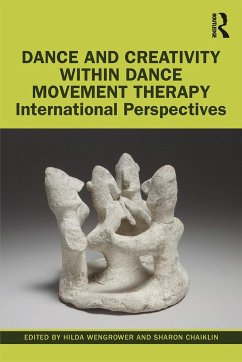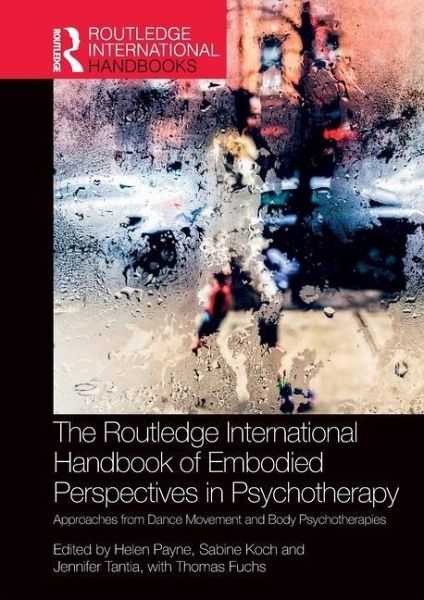
The Routledge International Handbook of Embodied Perspectives in Psychotherapy
Approaches from Dance Movement and Body Psychotherapies
Herausgegeben: Payne, Helen; Koch, Sabine; Tantia, Jennifer
Versandkostenfrei!
Versandfertig in 6-10 Tagen
45,99 €
inkl. MwSt.

PAYBACK Punkte
23 °P sammeln!
There is a growing interest in embodied approaches to psychotherapy internationally. This volume focuses on the respective focal professions of dance movement psychotherapy (DMP) and body psychotherapy (BP), addressing the psychotherapeutic need for healing throughout the lifespan. Within embodied clinical approaches, the therapist and client collaborate to discover how the body and movement can be used to strengthen positive relational skills, attending to the client's immediate and long-term needs through assessment, formulation, treatment and evaluation. Both DMP and BP are based upon the c...
There is a growing interest in embodied approaches to psychotherapy internationally. This volume focuses on the respective focal professions of dance movement psychotherapy (DMP) and body psychotherapy (BP), addressing the psychotherapeutic need for healing throughout the lifespan. Within embodied clinical approaches, the therapist and client collaborate to discover how the body and movement can be used to strengthen positive relational skills, attending to the client's immediate and long-term needs through assessment, formulation, treatment and evaluation. Both DMP and BP are based upon the capacity and authority of the body and non-verbal communication to support and heal patients with diverse conditions, including trauma, unexplained bodily symptoms and other psychological distress, and to develop the clients' emotional and relational capacities by listening to their bodies for integration and wellbeing.
In The Routledge International Handbook of Embodied Perspectives in Psychotherapy, world leaders in the field contribute their expertise to showcase contemporary psychotherapeutic practice. They share perspectives from multiple models that have been developed throughout the world, providing information on theoretical advances and clinical practice, as well as discourse on the processes and therapeutic techniques employed individually and in groups. Presented in three parts, the book covers underpinning embodiment concepts, potentials of dance movement psychotherapy and of body psychotherapy, each of which is introduced with a scene-setting piece to allow the reader to easily engage with the content. With a strong focus on cross- and interdisciplinary perspectives, readers will find a wide compilation of embodied approaches to psychotherapy, allowing them to deepen and further their conceptualization and support best practice.
This unique handbook will be of particular interest to clinical practitioners in the fields of body psychotherapy and dance movement psychotherapy as well as professionals from psychology, medicine, social work, counselling/psychotherapy and occupational therapy, and to those from related fields who are in search of information on the basic therapeutic principles and practice of body and movement psychotherapies and seeking to further their knowledge and understanding of the discipline. It is also an essential reference for academics and students of embodied psychotherapy, embodied cognitive science and clinical professions.
In The Routledge International Handbook of Embodied Perspectives in Psychotherapy, world leaders in the field contribute their expertise to showcase contemporary psychotherapeutic practice. They share perspectives from multiple models that have been developed throughout the world, providing information on theoretical advances and clinical practice, as well as discourse on the processes and therapeutic techniques employed individually and in groups. Presented in three parts, the book covers underpinning embodiment concepts, potentials of dance movement psychotherapy and of body psychotherapy, each of which is introduced with a scene-setting piece to allow the reader to easily engage with the content. With a strong focus on cross- and interdisciplinary perspectives, readers will find a wide compilation of embodied approaches to psychotherapy, allowing them to deepen and further their conceptualization and support best practice.
This unique handbook will be of particular interest to clinical practitioners in the fields of body psychotherapy and dance movement psychotherapy as well as professionals from psychology, medicine, social work, counselling/psychotherapy and occupational therapy, and to those from related fields who are in search of information on the basic therapeutic principles and practice of body and movement psychotherapies and seeking to further their knowledge and understanding of the discipline. It is also an essential reference for academics and students of embodied psychotherapy, embodied cognitive science and clinical professions.





